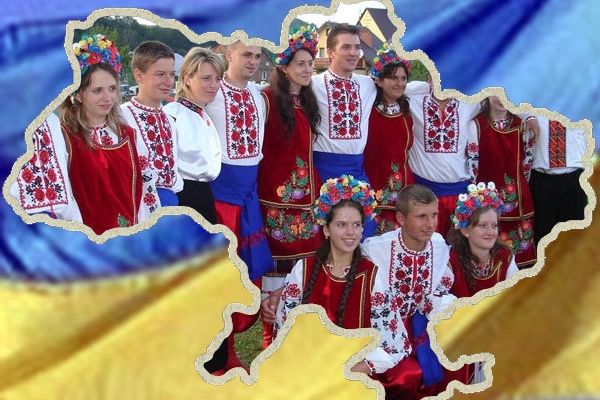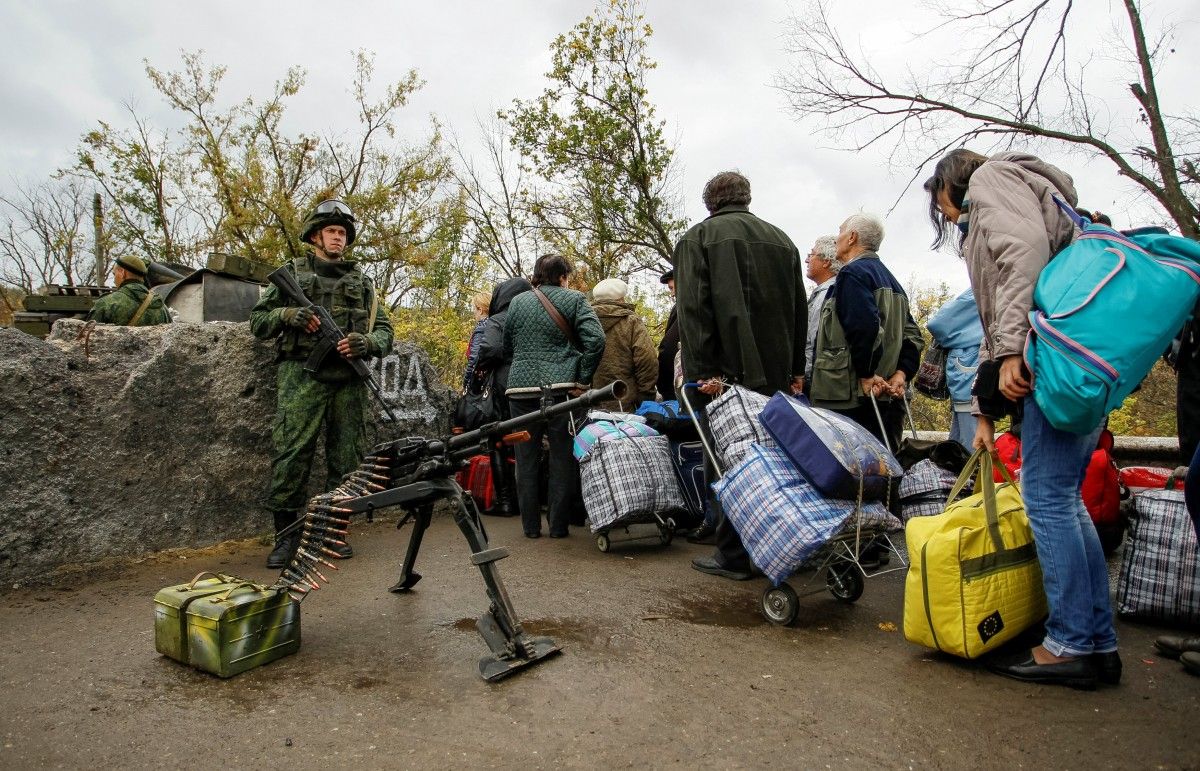
Forgotten count
15 years ago, December 5, the first ever all-Ukrainian census (and so far the only one) was carried out. Later on, ignoring the UN recommendations on the need to carry out further recounts every ten years, our country continues to delay the procedure.
During the rule of the criminal regime of Viktor Yanukovych, the Ukrainian census was postponed three times. The last time it was scheduled for 2016. But two years before the planned date, the government changed, and also did the schedule – this time the recount was postponed until 2020. The choice of this year was mainly due to the United Nations standards: a census is best to be carried out in years ending with "0", "1", or "9".
Sociologists need information
Despite the fact that a few years are still to go until the potential census and that the year of its implementation can be changed again, in September 2016 the government started talking about creating an interagency group to prepare for counting Ukrainians. Minister of Social Policy of Ukraine Andriy Reva in the early fall said that the census was needed, including to "assess the loss of human resources and to understand the uncontrolled migration flows" in connection with the annexation of Crimea and military operations in the east.
According to him, the lack of information on the number and sex and age composition of the population poses a threat to national security, as these data are fundamental in determining mobilization capacities, manpower, budget expenditures allocated for the provision of education, housing, transport and other social services, and risk assessment related to unemployment and poverty.

"We, of course, believe that the census is very necessary,” says head of the sociology, culture and mass communications department of the Institute of Sociology of NAS of Ukraine Natalia Kostenko. “The latest census was held a long time ago, and since then there have been so many migration changes that counting the population would be a right thing to do... All our samples are based on the census. These are more or less hard data with which we (sociologists) are guided."
According to her, given that the census is a very capacious measure from the point of view of energy consumption and financing, starting to prepare for it for four years prior may well be justified.
Where does the money go
Despite the fact that the date of the census was constantly postponed, the state budget article "Statistical monitoring and census" had some money allocated each year. According to the State Statistics Service, it went "on performing a work schedule for the preparation for the All-Ukrainian census of the population." In particular, we are talking about the work on "updating cartographic material, quarterly household data, and rural settlement lists."
While in 2012, nearly UAH 350 million was allocated for the preparation, in 2013 it was UAH 670 million, but in 2014, as if to confirm that nothing was going to be held in 2016, it was only some UAH 11 million. In 2015 and in 2016, a mere UAH 8.6 million a year was provided for these purposes.

"It's hard to say whether or not it’s enough money,” said Natalia Kostenko. “The census has always been a costly venture. But this is an important state affair."
In this regard, director of the sociological service Ukrainian Barometer Viktor Nebozhenko believes that part of the funds aimed to prepare for the census may well be provided by our Western partners in the form of some grants. "The thing is that… the West needs accurate data on what is happening in Ukraine in socio-demographic terms… It is necessary for a proper understanding of the situation and taking further action. Therefore, there is nothing wrong in the them giving the money to prepare for the census in exchange for information that they will get," he said.
"Unrecorded" citizens are an important administrative resource
However, in his opinion, no one is really interested in Ukraine to actually count all Ukrainians. "Administrative resources rest on the absence of a clear understanding of the number of voters," says the sociologist.
According to his estimates, both within the country and beyond its borders some 1.5 million citizens have been moving being "unaccounted for". And these people, in one way or another, can always be included by local authorities in some electoral lists, and thus become what is called an administrative resource in any election.
In addition, the appearance of a million citizens "unaccounted for" is also contributes due to a lack of motivation to register their new place of residence. In other words, while in the Western countries, when moving to a new place of residence, the citizens register their Social Security cards in a new place, in order to get access to a number of social services, there is no such thing in Ukraine at all.

"The second problem of Ukraine is the number of citizens who also have passports of other countries," said Nebozhenko.
Despite the fact that Ukraine has banned dual citizenship, many citizens have several passports, and that’s an indisputable fact. But it is unlikely that in a face to face survey the people will admit it. This, in turn, distorts the results of the census.
This, in particular, may be evidenced with the results of the previous two counts of citizens in Ukraine, when from 1989 to 2001, according to the census, the population has decreased overall by 3.2 million people, while the second-largest ethnic group in Ukraine, the Russians decreased by 3 million. It is unlikely that all of these people at this period really left Ukraine. But during the census they just did not identify themselves with the Russians. However, as a result, this led to a lot of political speculations around the "traditional" topic for ardent disputes of "forced Ukrainization" and "the destruction of the Russian-speaking population", which needs to be “protected”. This is what the Kremlin recently took advantage of, and Ukraine has been experiencing the result for the third year in a row.
Conduct it or not
Returning to the topic of the census, the main risk and methodological impossibility of counting the population, according to sociologists, is the occupied territories. "It is impossible to conduct the census there,” says the director of the sociological service of the Razumkov Center Andriy Bychenko. “If a census in a number of regions is incomplete, it does not address the initial issues it is aimed to. This is the main problem."
Thus, according to him, before 2020, Ukraine needs to resolve this issue. The sociologist sees two solutions. The first one is to re-establish control over the occupied territories. The second one is to adopt legal acts, which would legitimize the failure to conduct the census in these areas. "In particular, if we recognize the territory as temporarily occupied, then, in accordance with international law, all obligations to hold a census shifts to the other side, the occupier," says Andriy Bychenko.
According to him, just talking about the occupation, when the occupier seems to be formally known, is not enough. We need to cross the T’s and dot the I’s in this issue. "Without this, we are faced with the impossibility of conducting the census as a whole," he added.
On the other hand, even naming the occupier “occupier” does guarantee that the people in the occupied territories will frankly answer the questions of the questionnaire. "An important part in the census is cooperation on the part of respondents. If the process is run without serious preparation, there will be a great failure rate. This eliminates the census results," he said.

Head of the department of social and political processes of the Institute of Sociology of NAS of Ukraine, head of the Ukrainіan Sociology Service Oleksandr Vyshniak agrees with this view. "There are two problems. First, conducting a census is practically impossible due to the fact that part of the territory is not controlled by Ukraine. Second, right now nobody can be forced to answer the questions from the questionnaire," he says.
However, there is a solution. According to Mr Vyshniak, there is no need to do the census in the form it was carried out before - literally with a door-to-door survey. "Electronic databases of various ministries and agencies are now much more complete than any census. Therefore, in my opinion, we just need to merge the databases, and no other census would be necessary. But this requires political will," he said.
By the way, that was Estonia’s way. In mid-November, the Estonian statistical agencies conducted a test e-census (they collected information on the living conditions of the Estonian population: the total number of dwellings and real estate, rooms, heating type, the average number of residents per square meter, geographic location, and so on) using the data on citizens from the relevant state register. The Estonian authorities admit that obtaining data about the citizens from twenty basic public registers can take several years. However, several of these pilot counts will allow for the following one to be held without the influence of the human factor and exorbitant costs.
Perhaps this experience would also be useful for Ukraine.
Tatiana Urbanskaya

